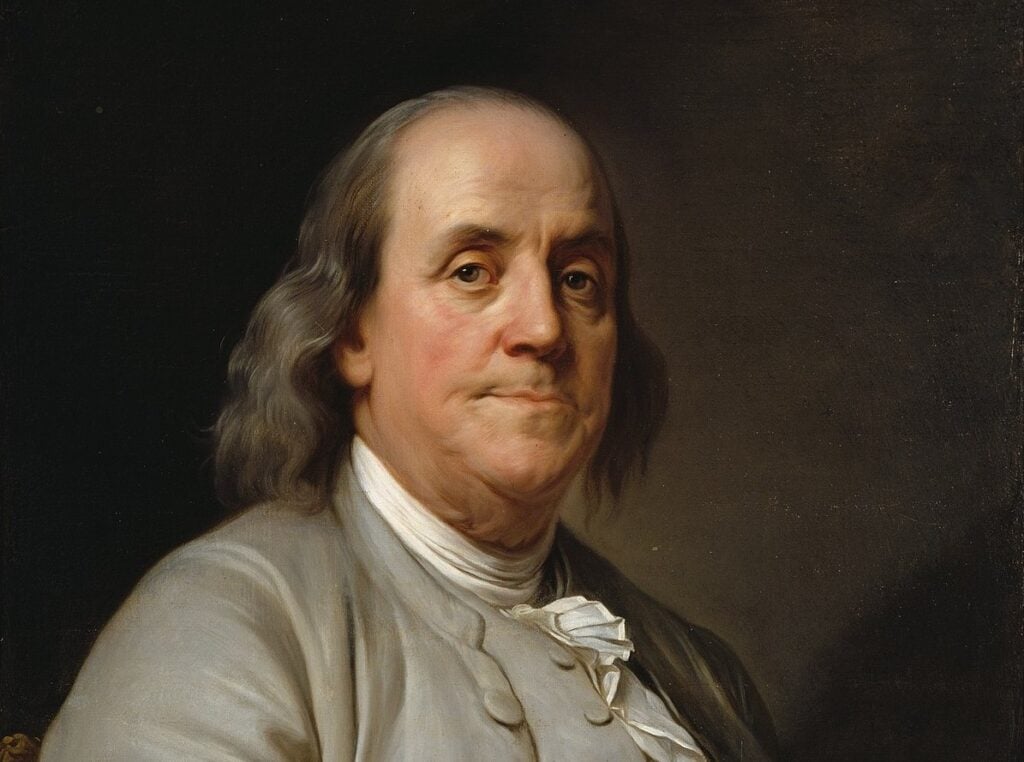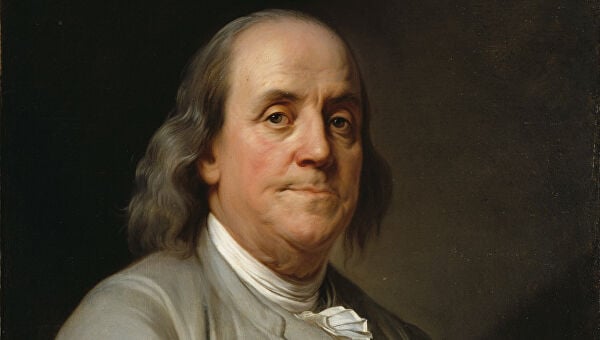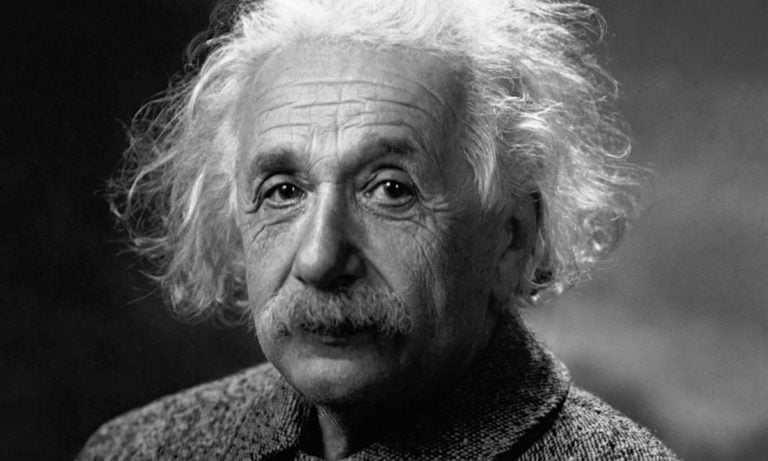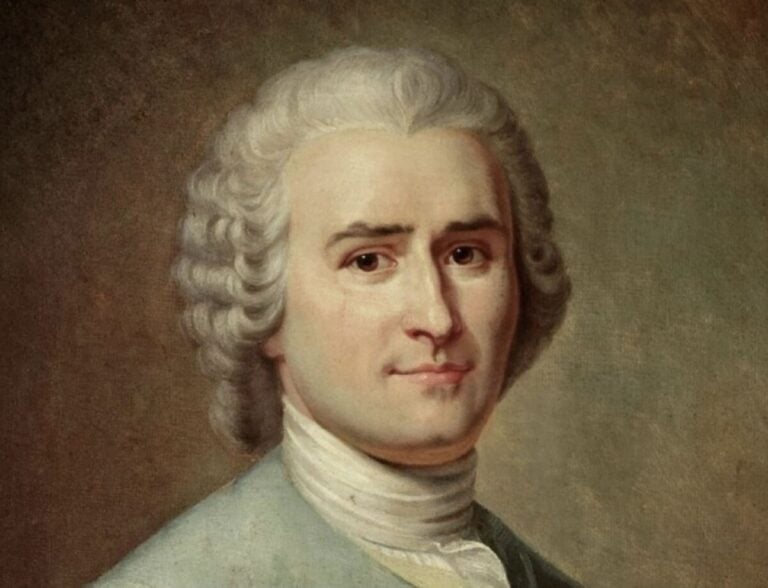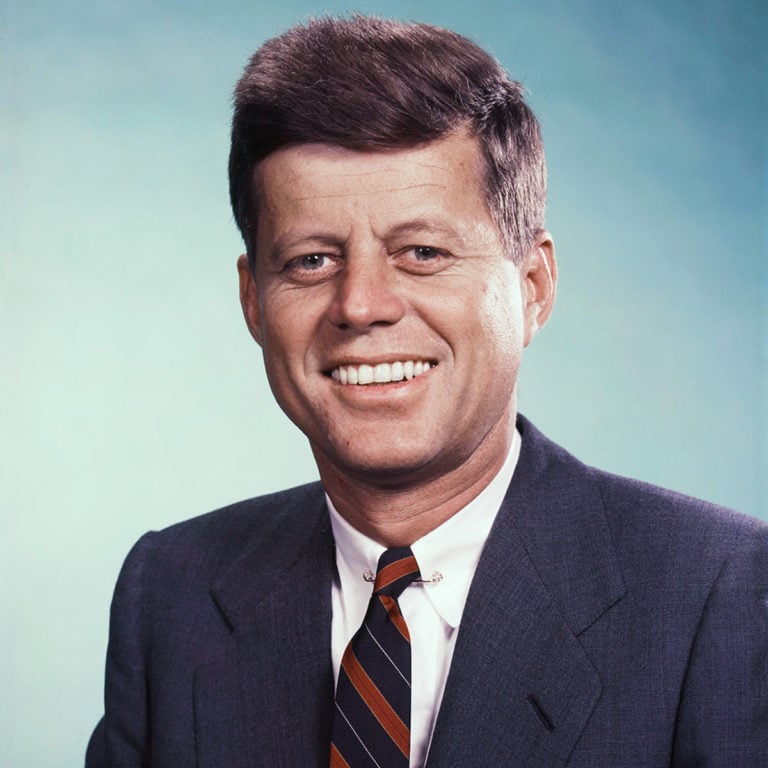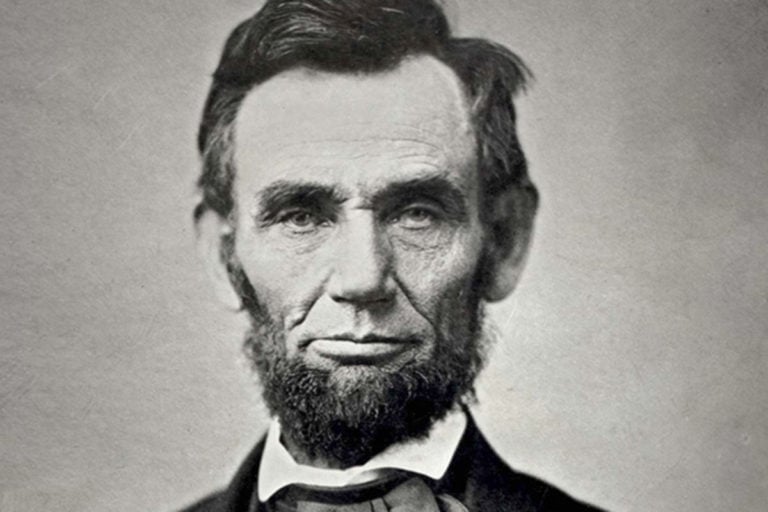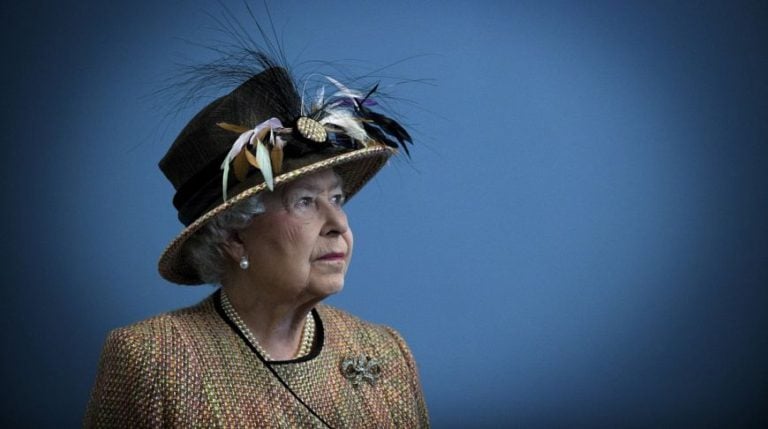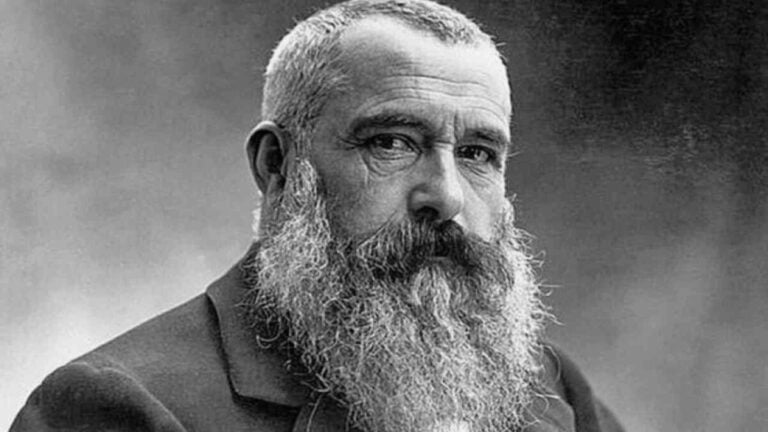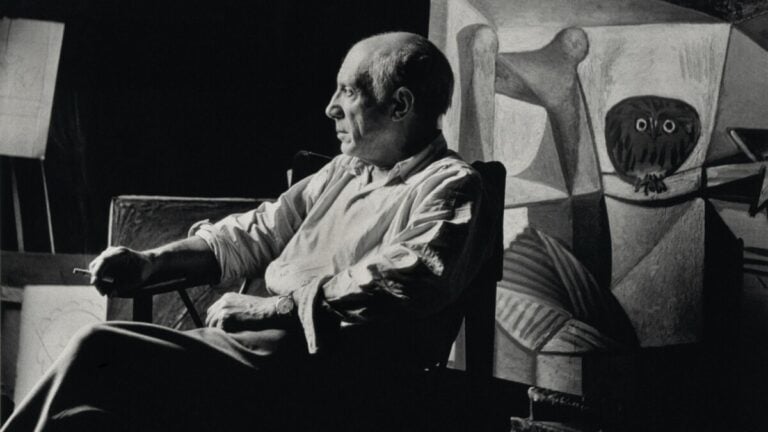Benjamin Franklin was born in 1706 in Boston. He was the tenth son of a soap and candle maker. He received some formal education, but was mostly self-taught.
He was briefly apprenticed to his father between the ages of 10 and 12, and then went to work for his half-brother James, a printer. In 1721 the latter founded the New England Courant, the fourth newspaper in the colonies. Benjamin secretly contributed 14 essays, his first published works.
Beginning of young Franklin
In 1723, due to disagreements with his half-brother, Franklin moved to Philadelphia, where he took a job as a printer. He only spent a year there and then sailed to London for another 2 years. Returning to Philadelphia, he made rapid progress in the printing industry. He published the Pennsylvania Gazette (1730-48), founded by another man in 1728, but his most successful literary enterprise was Poor Richard’s Yearly Almanac (1733-58). It gained popularity in the colonies second only to the Bible, and in time its fame spread throughout Europe.
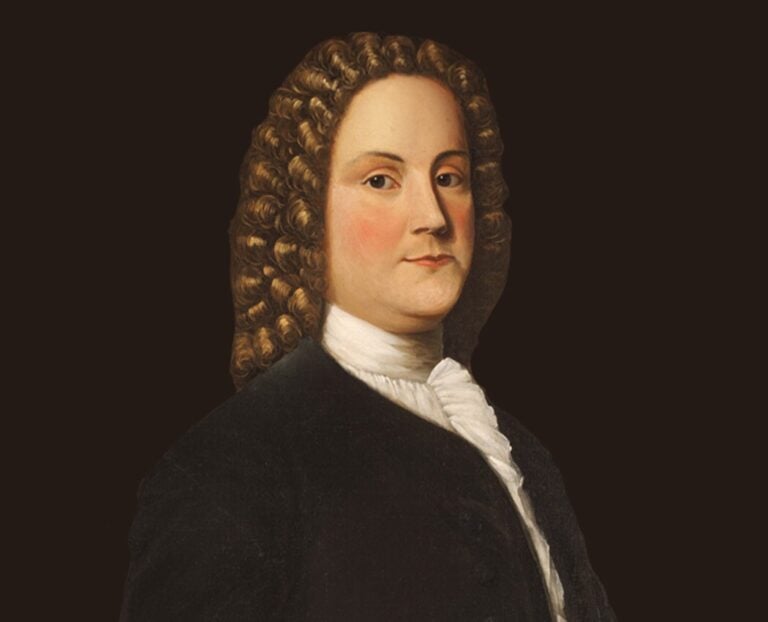
Meanwhile, in 1730, Franklin became involved with Deborah Reid, who was to bear him a son and daughter, and he also apparently had children by another unnamed woman out of wedlock. By 1748 he had achieved financial independence and was recognized for his philanthropy and the assistance he gave to civic institutions such as libraries, educational institutions, and hospitals. Energetic and indefatigable, he also found time to dabble in science and politics.
Franklin served as clerk (1736-51) and member (1751-64) of the colonial legislature, as well as deputy postmaster of Philadelphia (1737-53) and deputy postmaster general of the colonies (1753-74). In addition, he represented Pennsylvania at the Albany Congress (1754), designed to unite the colonies during the French and Indian Wars. Congress passed his “Plan of Union”, but the colonial assemblies rejected it because it encroached on their authority.
During 1757-62 and 1764-75 Franklin resided in England, initially as an agent in Pennsylvania and later in Georgia, New Jersey and Massachusetts. During the last period, which coincided with the rise of colonial unrest, it underwent a political metamorphosis. Until then, a contented Englishman primarily preoccupied with the politics of the province of Pennsylvania, he distrusted popular movements and saw no good in extreme views.
When the issue of Parliamentary taxation undermined old alliances, he led the Quaker party’s attack on the Anglican Proprietary Party and its Presbyterian frontier allies. His goal for many years in London was, in fact, to overthrow the administration of the Penn family by royal power.
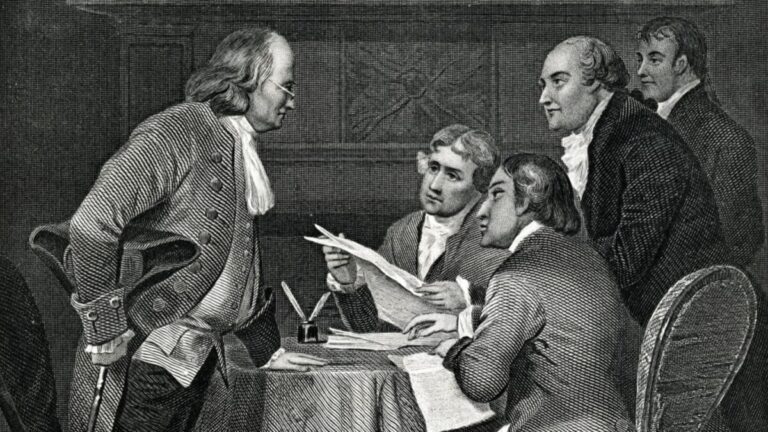
It was during the Arms Act crisis that Franklin went from being the leader of a split faction in the provincial party to a prominent spokesman for the London-based American rights movement. Although as an agent in Pennsylvania he opposed the passage of the bill in 1765 in every possible way, he did not at first realize the depth of colonial hostility. He considered the transition to be inevitable and preferred to obey it, in fact working towards its abolition.
Franklin’s appointment of a friend and political ally as stamp distributor for Pennsylvania, coupled with his apparent support for the legislation, armed his own opponents with explosive questions. Their vigorous attack jeopardized his reputation in the US until credible information was released demonstrating his enduring opposition to the law.
For a time, mob outrage threatened his family and new home in Philadelphia, until his supporters rallied. Subsequently, Franklin’s defense of the American position in the House of Commons during the debate over the repeal of the Arms Act restored his prestige at home.
Return to America
Franklin returned to Philadelphia in May 1775 and immediately became a prominent member of the Continental Congress. Thirteen months later, he joined the committee that drafted the Declaration of Independence. Subsequently, he contributed to the government in other important ways, including serving as Postmaster General and taking on the duties of President of the Pennsylvania Constitutional Convention.
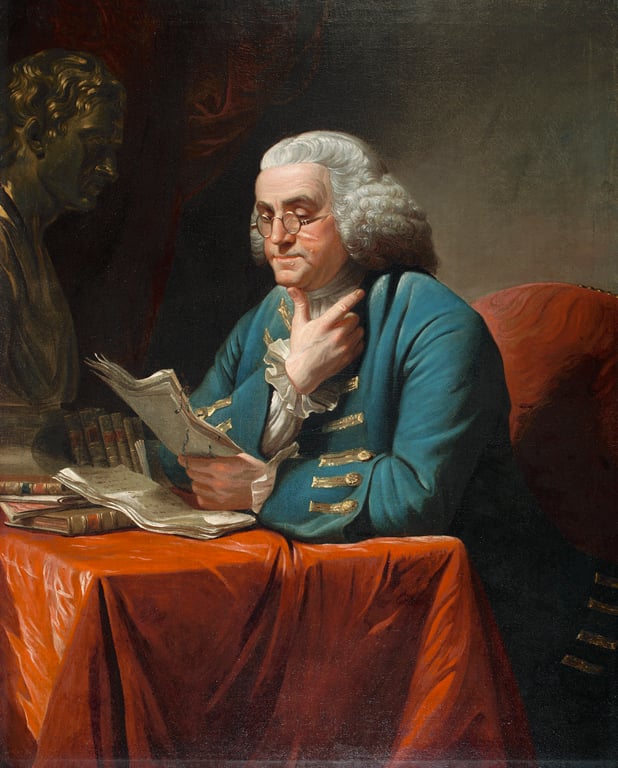
But less than a year and a half after his return, the aged statesman traveled back to Europe, embarking on a career as a diplomat that would take up much of the rest of his life. In 1776-79, as one of three commissioners, he led the negotiations that led to treaties of trade and alliance with France, where the people adored him, but he and the other commissioners constantly quarreled. While he was the only commissioner in France (1779-85), he and John Jay and John Adams negotiated the Treaty of Paris (1783), which ended the Revolutionary War.
Returning to the United States, in 1785 Franklin became president of the Supreme Executive Council of Pennsylvania. At the Constitutional Convention, although he disapproved of many aspects of the finished document and was hindered by his age and failing health, he missed few, if any, meetings.
During the twilight years, while working on his autobiography, Franklin could look back on a long, productive life. Energetic almost to the last, in 1787 he was elected the first president of the Pennsylvania Society for the Promotion of the Abolition of Slavery, a cause to which he had devoted himself as early as the 1730s. His last public act was the signing of a memorial to Congress recommending the abolition of the slavery system. Shortly thereafter, in 1790, at the age of 84, Franklin died in Philadelphia and was buried in Christ Church Cemetery.
